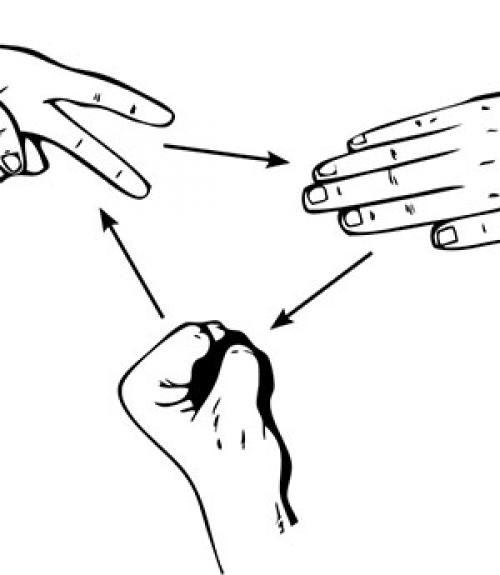The hand game “rock-paper-scissors” is a classic way to settle playground disputes, with rock smashing scissors, scissors cutting paper, and paper covering rock. But it turns out that nature plays its own versions of the game, and mathematicians and biologists have used it to study everything from human societies to bacteria in a petri dish. Now, researchers have found that when players change their strategies on the fly, a stable pattern arises in which each of the three weapons gains and loses popularity in turn. The discovery could shed light on how living creatures maintain competing strategies in the struggle for existence.
Inspired by computer simulations of a related game, two mathematicians—Steven Strogatz and Danielle Toupo of Cornell University—decided to get to the root of what happens when players switch strategies midgame. “I thought it was fascinating, and I wanted to find a mathematical model that would describe this in its simplest form,” Strogatz says. They went back to basics, studying the pure equations instead of complicated computer simulations. See full story.




